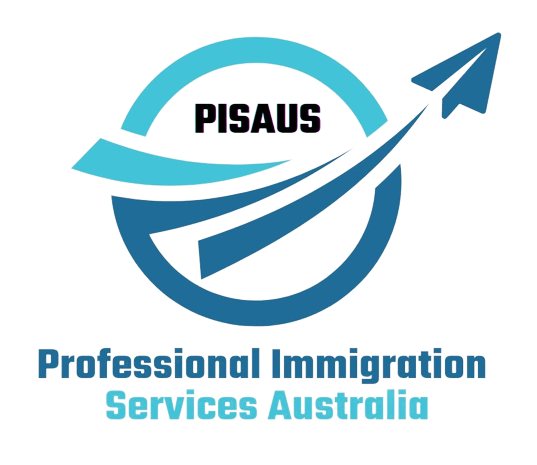
1. Introduction to the Protection Visa (subclass 866)
The Protection Visa (Subclass 866) is a crucial pathway for asylum seekers in Australia to secure permanent residency and find safety from persecution in their home countries. However, understanding the eligibility criteria and navigating the application process can be complex and overwhelming. In this blog post, we will decode everything you need to know about Australia’s Protection Visa (Subclass 866), including the eligibility requirements, supporting documents, and the rights of asylum seekers in the application process. Whether you are an asylum seeker or someone looking to provide support, this guide will provide valuable information and insights to unravel the intricacies of this important visa subclass.
2. Understanding the eligibility criteria for the Protection Visa
Understanding the eligibility criteria for the Protection Visa is crucial before embarking on your application journey. To be eligible for the Protection Visa (Subclass 866), you must meet several requirements set by the Australian government.
Firstly, you must be outside your home country and unable or unwilling to go back due to a well-founded fear of persecution based on one or more of the five grounds: race, religion, nationality, political opinion, or membership of a particular social group.
Secondly, you must undergo thorough security, character, and health checks. It is essential to provide accurate and up-to-date information regarding your medical history and any criminal convictions.
Furthermore, you must demonstrate that you have a genuine need for protection. This means providing compelling evidence that supports your claim of experiencing persecution or fears of future harm.
Navigating through the eligibility criteria can be challenging. In the next section, we will provide a comprehensive breakdown of the key requirements, helping you understand what is needed to strengthen your Protection Visa application. Stay tuned!
3. Meeting the definition of a refugee
One of the most important eligibility criteria for the Protection Visa (Subclass 866) is meeting the definition of a refugee as outlined in the Australian Migration Act. Under the Act, a refugee is someone who is outside their home country and has a well-founded fear of persecution due to race, religion, nationality, political opinion, or membership of a particular social group. Additionally, the persecution they fear must be by the government or a group that the government cannot or will not control.
To support your claim of meeting the definition of a refugee, it is crucial to gather evidence that substantiates your fear of persecution. This evidence can include personal testimonies, photographs, news articles, or any other documentation that supports your claim. Providing a detailed and compelling account of your experiences will significantly strengthen your Protection Visa application.
4. Establishing a well-founded fear of persecution
Now that you are familiar with the definition of a refugee and its impact on a Protection Visa (Subclass 866) application, it’s time to delve deeper into the process of establishing a well-founded fear of persecution. This is a crucial aspect as it forms the basis of your claim for protection.
To substantiate your fear of persecution, you will need to gather compelling evidence that supports your claim. This evidence can come in various forms, such as personal testimonies, photographs, news articles, or any other documentation that demonstrates the risks you face in your home country.
When gathering evidence, make sure to include detailed accounts of specific incidents, illustrating how your race, religion, nationality, political opinion, or membership in a particular social group puts you at risk. These accounts should depict the government’s inability or unwillingness to protect you from the persecution you fear.
To present your evidence effectively, it’s essential to organise and structure it logically and coherently. This will help immigration officials understand the gravity of your situation and strengthen your Protection Visa application.
In the next section, we will provide valuable tips on how to gather and present your evidence effectively.
5. Examination of complementary protection claims
Once you have established a well-founded fear of persecution and gathered compelling evidence to support your claim, the next step in the Protection Visa (Subclass 866) application process is the examination of complementary protection claims. Complementary protection is a mechanism available to individuals who do not meet the criteria for refugee status but still face a real risk of harm if they were to return to their home country.
To be eligible for complementary protection, you must demonstrate that there are substantial grounds for believing that you would face significant harm, such as threats to your life, freedom, or a risk of torture or cruel treatment if you were to return to your home country. This examination process focuses on assessing the individual circumstances of your case to determine whether you meet the criteria for complementary protection.
In the next section, we will explore the key factors that immigration officials consider when assessing complementary protection claims and guide how to strengthen your case. Stay tuned to ensure that you are well-prepared to navigate this critical stage of the Protection Visa application process.
6. Providing evidence and documentation to support your case
When applying for a Protection Visa (Subclass 866) and making complementary protection claims, it is crucial to provide strong and convincing evidence to support your case. This evidence should demonstrate the substantial grounds for believing that you would face significant harm if you returned to your home country.
To strengthen your case, it is highly recommended to gather as much documentary evidence as possible. This could include police reports, medical records, photographs, or any other relevant documentation that supports your claims of persecution or harm. It is important to ensure that all evidence is authentic, accurate, and verifiable.
Additionally, providing personal statements detailing your experiences and the impact they have had on your life can be compelling. It is advisable to provide a detailed explanation of the events leading to your fear of persecution and the reasons why you believe you are at risk of harm in your home country.
7. Important considerations and potential challenges
In this next section, we will cover some important considerations and potential challenges that you may encounter during the Protection Visa application process in Australia. It is crucial to be aware of these aspects as they can greatly impact the success of your application.
One important consideration is the need for accurate and up-to-date information. The immigration laws and regulations about the Protection Visa are subject to change, so it is essential to stay informed about any updates or modifications. Regularly checking the official website of the Department of Home Affairs can help you stay updated on any changes to the process or requirements.
Another potential challenge is the language barrier. If English is not your first language, you may face difficulties in understanding and completing the application forms, as well as providing the necessary evidence. In such cases, it is advisable to seek assistance from a qualified migration agent or interpreter to ensure accurate communication and interpretation.
Financial constraints can also pose a challenge for some applicants. The application fees for the Protection Visa can be substantial, and the costs associated with gathering supporting evidence, such as medical reports or legal advice, can add up. It’s important to carefully budget for these expenses and explore any options for financial assistance or pro bono services.
Lastly, the emotional and psychological toll of the application process should not be underestimated. Going through the Protection Visa application process can be stressful and overwhelming, as it often involves reliving traumatic experiences and providing sensitive information. It’s important to prioritise self-care and seek emotional support from trusted friends, family members, or support services.
In the subsequent sections, we will delve deeper into each of these considerations and challenges, providing practical tips and advice to help you navigate them successfully. By being aware of these potential obstacles and preparing accordingly, you can increase your chances of a smooth and successful Protection Visa application process. Stay tuned for more valuable insights in the following sections.
8. Conclusion: Seeking professional assistance for a successful visa application
In this final section, we will discuss the importance of seeking professional assistance when applying for a Protection Visa (Subclass 866) in Australia. While it is possible to complete the application process on your own, hiring a qualified migration agent can greatly enhance your chances of success.
A migration agent is trained and experienced in navigating the complex immigration system and can provide valuable guidance throughout the application process. They have a thorough understanding of the eligibility criteria, and documentation requirements, and can help you gather the necessary evidence to support your claims. Additionally, they can review your application to ensure it is complete and accurate, increasing the likelihood of a positive outcome.
When choosing a migration agent, it is important to do your research and select someone who is registered with the Office of the Migration Agents Registration Authority (MARA). This registration ensures that the agent is knowledgeable, and ethical, and operates in line with the industry standards.
While hiring a migration agent comes with a cost, it is an investment that can save you time, and stress, and potentially increase your chances of success. They can provide personalised advice tailored to your specific circumstances and easily guide you through the application process.
In conclusion, applying for a Protection Visa (Subclass 866) in Australia can be a complex and challenging process. However, by seeking professional assistance from a qualified migration agent, you can navigate the process with greater ease and maximize your chances of a successful outcome. Remember to carefully research and choose a reputable migration agent to ensure the best possible support throughout your visa application journey.
In closing, navigating the journey to secure Australia’s Skilled Independent Visa – Subclass 189 can be complex, but with this guide, you’re equipped to tackle the process. If uncertainties or questions emerge along your immigration path, PISAUS – PROFESSIONALS IMMIGRATION SERVICES AUSTRALIA is here to help. Their expert team offers tailored advice to guide you smoothly through your immigration journey. Remember, with the right support, your Australian dream is within reach. Call us today!

Professionals Immigration Services Australia (P.I.S.AUS) is a Sydney-based firm of registered migration agents. We specialise in providing personalised, expert guidance for various Australian visa applications. Committed to transparency and efficiency, we're available 24/7 to ensure a smooth, successful migration experience for individuals and families alike.
(02) 96355566
Professionals Immigration Services Australia Suite 5,Level 4, 91 George Street Parramatta NSW 2124